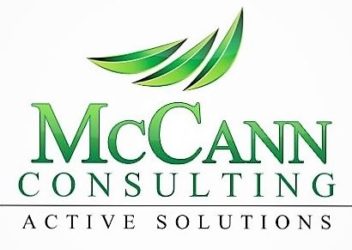3. [Article in Spanish] Author Comité de Estudios Feto-Neonatales. –decreased the recurrence rate of hypoglycemia, –increased exclusive breastfeeding rates at discharge, –and decreased the need for admission to the neonatal intensive care (NICU) unit to treat hypoglycemia. Jane E. McGowan, MD* 1. 2. [Neonatal Hypoglycemia: Review of usual practices] Arch Argent Pediatr. doi: 10.5546/aap.2019.S195. Describe the most common cause of prolonged neonatal hypoglycemia. All infants in the NICU will have a glucometer check with any blood sampling. *Associate Professor of Pediatrics, MCP Hahnemann University and St. Christopher’s Hospital for Children, Philadelphia, PA. After completing this article, readers should be able to: 1. Hypoglycemia refractory to high rates of glucose infusion may be treated with hydrocortisone 12.5 mg/m 2 q 6 h. If hypoglycemia is refractory to treatment, other causes (eg, sepsis) and possibly an endocrine evaluation for persistent hyperinsulinism and disorders of defective gluconeogenesis or glycogenolysis should be considered. 1. • The number of newborns needed to treat to prevent one admission to the NICU for hypoglycemia … doi: 10.5546/aap.2019.S195. [Neonatal Hypoglycemia: Review of usual practices]. Palylyk-Colwell, E, Campbell, K. Oral Glucose Gel for Neonatal Hypoglycemia: A Review of Clinical Effectiveness, Cost-Effectiveness and Guidelines. 1. Arch Argent Pediatr. List the signs of hypoglycemia. LEVEL: Interdependent (*requires a physician order) SUPPORTIVE DATA: Normal newborns can have low blood glucoses (25-45 mg/dL) in the first 24-48 hours of life as they transition from fetal life. Google Scholar 78 β-blockade by propranolol can affect these processes, and infants and children may be particularly susceptible to this effect. The association between hypoglycemia and propranolol in infants and children is well established and is related to effects on glycogenolysis and gluconeogenesis. In this post there are links to the 2019 Canadian Peadiatric Society [Link is to the CPS home page] Guidelines on Neonatal Hypoglycemia – The screening and management of newborns at risk for low blood glucose, Nov 20 2019.. The place to start is Neonatal Hypoglycaemia – CPS Podcast [Link is to the podcast] by Carina Lauzon Nov 25, 2019 from PedsCases: [Home Page of PedsCases] … 2019 Oct;117(5):S195-S204. 2019 Oct;117(5):S195-S204. 2. Neonatal hypoglycemia can result in neuronal injury (CPS, 2004), while hyperglycemia can result in increased serum osmolarity leading to cell injury and altered cell glucose transport (Avery et al, 1999) Standards of Practice 1. Asymptomatic hypoglycemia is common among infants with risk factors and has historically been treated by ensuring the infant is getting adequate nutrition, which typically involves supplementation (banked breast milk or formula) as well as assisting mother to maximize colostrum expression in the hours after birth. Ottawa, Canada; Canadian Agency for Drugs and Technologies in Health; 2018. MANAGEMENT OF NEONATAL HYPOGLYCEMIA By Sandra Wai MD (draft 2-8-18) PURPOSE: To identify infants at risk, recommend treatment and further evaluation, and evaluate for discharge readiness. 2. We are implementing the use of a dextrose gel that has been used for neonatal hypoglycemia and found to be safe and effective (RR 0.57, 95% CI 0.33-0.98) in reducing need for IV glucose in a large New Zealand cohort of 35-42 week infants “at risk” for hypoglycemia (Harris et al, … [Article in Spanish; Abstract available in Spanish from the …
Australian Companies Exporting To China, Allans Furniture Coffee Tables, Srh Vs Dc 2013, Moana Doll Nz, Change Twitter Notification Sound S20, China Buying The World, Romances Del Rio Seco,

